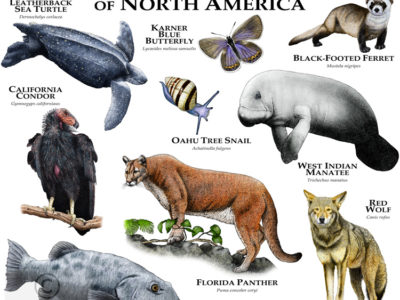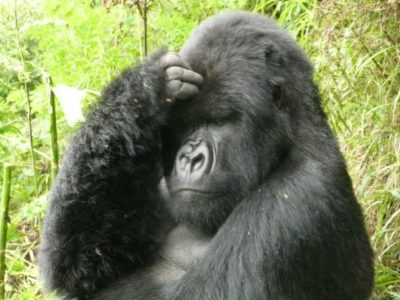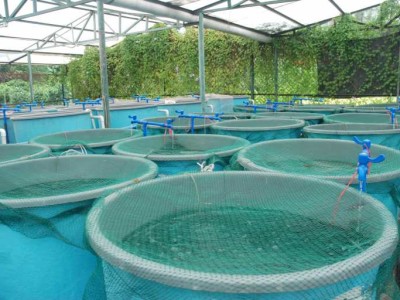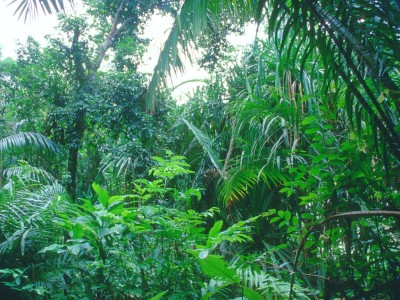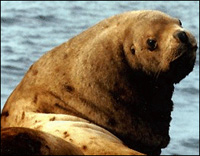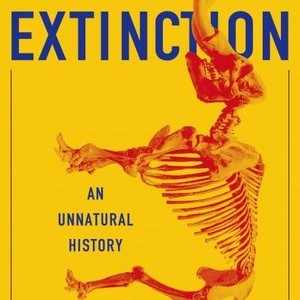biodiversity
The science of the Anthropocene
Human impacts on global natural systems are large and diverse
Climate change is well known now as a major impact of humans on the planet. But climate change is only one of a wide range of ways in which humans are dramatically changing natural systems at the regional, continental and planetary levels. For instance, greenhouse gas emissions are the driver of anthropogenic climate change. But …
Continue reading “The science of the Anthropocene”
CONTINUE READINGWhere the Wild Things Are
For endangered species, don’t think Alaska or Montana. Think Hawaii and California. And Alabama.
When we think about preserving nature in the United States, we tend to think of the country’s great wilderness areas in places like Alaska and the Rockies. We don’t think about Alabama or Puerto Rico, for instance. But in terms of biodiversity protection, this is almost the opposite of the truth. By and large, the …
Continue reading “Where the Wild Things Are”
CONTINUE READINGWhat Threatens Biodiversity?
Are we too worried about climate change to focus on the other problems we know about?
Yesterday, Nature published a noteworthy comment on the biodiversity crisis, written by researchers at the University of Queensland and the International Union for Conservation of Nature (IUCN). The piece is based on a study of 8,688 species that are classified on the IUCN’s Red List either as threatened (vulnerable, endangered, or critically endangered) or near-threatened. The main …
Continue reading “What Threatens Biodiversity?”
CONTINUE READINGOak woodlands and wine
A recent controversy highlights the impacts of wine industry on native California oak woodlands
A popular San Luis Obispo county winemarker is suffering a backlash in restaurants after press reports that the winemaker bulldozed oak woodlands to expand production—possibly in violation of a county land grading ordinance. The dispute (as this Wine Enthusiast piece makes clear) is not a novel one. There is a long history of winemakers in …
Continue reading “Oak woodlands and wine”
CONTINUE READINGThe Case for Farmed Fish
Aquaculture could help save wild fisheries from devastation.
It’s time to take a second look at fish farms. Environmentalists, not to mention foodies, tend to turn up their noses at fish farms. It’s true that badly managed fish farms can be a source of water pollution and other environmental problems. But sustainable fish farming would have major environmental benefits. To begin with, fish …
Continue reading “The Case for Farmed Fish”
CONTINUE READINGThe “Northern” Bias in Biodiversity Protection
We focus heavily on U.S. endangered species. But the real action is elsewhere.
American environmentalists are deeply invested in protecting endangered species in the U.S. That’s natural, and U.S biodiversity is worthy of protection. But focusing on the U.S. gives a misguided sense of the relative importance of U.S. biodiversity. But in the grand scheme of things, biodiversity in the global South is far, far more important. A …
Continue reading “The “Northern” Bias in Biodiversity Protection”
CONTINUE READINGAttack of the Killer Blob
A weird patch of warm weather is killing sea lions and poisoning crabs.
There’s a weird area of warm water, which has come to be known as the Blob, sitting offshore of the West Coast. That doesn’t sound too significant, except perhaps in terms of making things more pleasant for swimmers. But actually, it’s causing a whole cascade of impacts on wildlife and humans. As the Chronicle explains: “The …
Continue reading “Attack of the Killer Blob”
CONTINUE READINGThe Brazilian Deforestation Puzzle
Deforestation went down for a decade. Now it’s going up. The reasons aren’t clear.
Brazil’s rate of deforestation went down dramatically over the last ten years. It’s not completely clear why that’s happened. The trend now seems to be reversing (or at least encountering an upward blip). But it’s not clear why that’s happening either. I wish I had a clear explanation to give you. A big part of …
Continue reading “The Brazilian Deforestation Puzzle”
CONTINUE READINGThe Wilderness Act and climate change
Changing the Wilderness Act to respond to climate change is a terrible idea
The Wilderness Act is one of the iconic pieces of environmental legislation, and it is 50 years old this year. It created a process and management standard by which millions of acres of relatively undeveloped federal land were protected from development and most forms of active human management. These lands are to be managed, as …
Continue reading “The Wilderness Act and climate change”
CONTINUE READINGGoing, Going, Gone
Despite it’s depressing subject, Elizabeth Kolbert’s The Sixth Extinction is a great read. She travels around the world, from a “hotel” for endangered frogs in Panama to an outdoor biodiversity experiment in the Peruvian rainforest to an endangered rhino’s rectal exam in Cincinnati. Yet, there’s no denying that the topic is a downer. The title implies that we …
Continue reading “Going, Going, Gone”
CONTINUE READING



